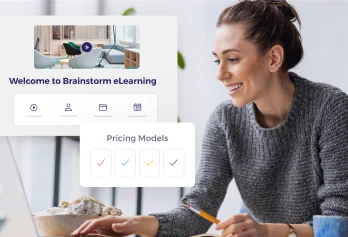Enabling leaders to support employee learning has become necessary for organizations to address the growing skills gap. According to the World Economic Forum, "As the rate of skills change accelerates across both old and new roles in all industries, proactive and innovative skill-building and talent management is an urgent issue." Learning in the workplace starts with leaders setting the right tone, but the manager's role in the learning journeys of their direct reports is what transforms strategy into practice. According to LinkedIn's "2018 Workplace Learning Report," more than half of respondents said they would take a manager-suggested course. Here are three ways to help managers develop talent.
1. Provide manager training
Given the influence and trust managers have with team members, it's important to ensure they're comfortable and confident supporting employees in their development. Finding learning opportunities may come easily to some managers; however others may require training to build confidence making learning recommendations. To ensure managers are equipped and prepared to take an active role in employee development, manager training may be required to inform them how to:
- Access and review courses available in content libraries.
- Offer suggestions to direct reports in a supportive manner.
- Follow up to answer questions and confirm learning has been retained.
Educate managers about how to find and suggest relevant courses for their team members, and let them know employees value their recommendations.
2. Understand learner needs
There's not a one-size-fits-all plan for learning. Assessments of team members' needs should be personalized and ongoing—not just occurring once or twice a year during performance reviews. Skilled managers use one-on-one conversations as learning opportunities to mentor and coach team members. They also use those conversations to identify areas for learning and development opportunities. In discussions about career paths, managers can review offerings in the learning management system and assist team members in identifying courses that will propel them forward in their career. For learning to stick, it's also essential for managers to use those conversations to ask about a course after a learner has completed it. When managers and direct reports have regular conversations about learning, they can naturally build trust. Employees feel more comfortable asking questions which in turn helps managers assess and encourage direct reports with specific recommendations for their learning journey.
3. Celebrate a learning culture
Managers are the front line when it comes to helping their direct reports celebrate and make the most of a learning culture. Employees are more likely to appreciate the learning culture of an organization and tap into available resources if their manager is promoting how to do so. During team meetings or coaching conversations, supervisors can share updates about their personal learning journey or showcase examples of learning that has positively impacted others' careers. When learning becomes a part of regular conversation, it's easier for managers to suggest courses and learning experiences relevant to an employee's specific interests and needs. Managers are motivated when their teams succeed. When you help managers tie learning to career paths and provide a learning system they can easily use, they're more likely to feel confident recommending learning to their teams. To leverage their important role in talent development, help managers understand how to support team members' development and celebrate the managers who make learning in the workplace a priority.





